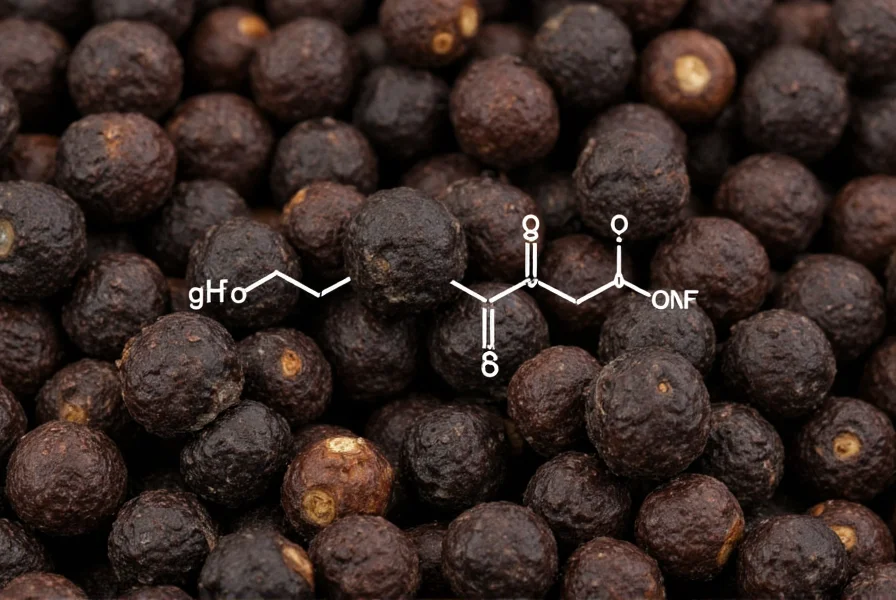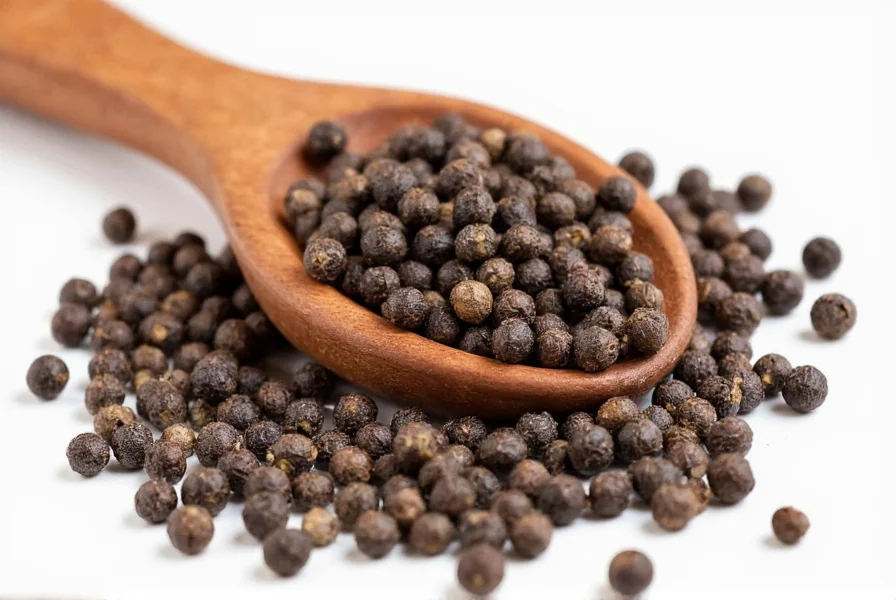Black pepper isn't just a kitchen staple for flavor enhancement—it's a powerhouse of health-promoting compounds with centuries of traditional use now validated by modern science. The key to black pepper's benefits lies primarily in piperine, its most active alkaloid constituting 4-10% of the spice. This compound gives black pepper its characteristic pungency while delivering measurable physiological effects.
Research shows piperine significantly increases the bioavailability of various nutrients and supplements. Most notably, it boosts curcumin absorption from turmeric by up to 2,000%, making the combination far more effective than either compound alone. This synergy explains why traditional Ayurvedic medicine often combines these spices. Beyond enhancing other compounds, black pepper itself contains valuable antioxidants that combat oxidative stress and support overall cellular health.
| Key Benefit | Scientific Evidence | Practical Application |
|---|---|---|
| Nutrient Absorption | Increases curcumin bioavailability by 2000% (Planta Medica, 1998) | Combine with turmeric in cooking or supplements |
| Antioxidant Activity | Neutralizes free radicals (Journal of Agricultural and Food Chemistry, 2015) | Regular culinary use provides daily antioxidant protection |
| Digestive Support | Stimulates digestive enzymes (European Journal of Pharmacology, 2013) | Consume with meals to enhance digestion |
| Anti-inflammatory Effects | Reduces inflammatory markers (Phytotherapy Research, 2017) | May support joint health when consumed regularly |
The Science Behind Black Pepper's Health Benefits
Multiple clinical studies confirm black pepper's role in enhancing nutrient bioavailability. The landmark study published in Planta Medica demonstrated that just 20mg of piperine increased curcumin absorption by 2,000% in human subjects. This effect extends beyond turmeric—piperine also improves the absorption of selenium, vitamin B6, beta-carotene, and coenzyme Q10.
Black pepper's antioxidant properties stem from its rich polyphenol content. These compounds neutralize free radicals that contribute to cellular damage and chronic disease. Research in the Journal of Agricultural and Food Chemistry identified multiple antioxidant compounds in black pepper that work synergistically to protect against oxidative stress.
For digestive health, black pepper stimulates the production of hydrochloric acid in the stomach, which improves protein digestion and nutrient absorption. This explains why many traditional cuisines incorporate black pepper into meals—it's not just for flavor but for functional digestive support. The European Journal of Pharmacology published findings showing piperine's ability to enhance digestive enzyme secretion.

Culinary Applications That Maximize Health Benefits
To harness black pepper's health-promoting properties, proper usage matters. Freshly ground pepper delivers significantly more piperine than pre-ground versions, as the volatile compounds degrade over time. For maximum benefit when using turmeric, add black pepper during cooking rather than after—the heat helps release piperine's bioactive compounds.
Chefs and nutritionists recommend incorporating black pepper into:
- Golden milk recipes (turmeric latte)
- Vegetable stir-fries
- Bean and legume dishes (aids digestion of complex carbohydrates)
- Homemade salad dressings
- Marinades for meats
The culinary uses of black pepper extend beyond simple seasoning—it actually transforms how our bodies process other nutrients. This explains why cultures worldwide have incorporated black pepper into traditional medicine systems for centuries.
Safety Considerations and Optimal Dosage
Black pepper is generally recognized as safe when consumed in typical culinary amounts (1-2 grams daily). Higher therapeutic doses (5-20mg of standardized piperine) used in supplements should be discussed with a healthcare provider, especially for those taking medications, as piperine can affect drug metabolism.
While rare, some individuals may experience mild gastrointestinal discomfort with excessive consumption. People with ulcers or inflammatory bowel conditions should monitor their tolerance. Unlike many supplements, black pepper's benefits are best obtained through regular culinary use rather than isolated high-dose supplementation.

Practical Tips for Maximizing Black Pepper Benefits
To get the most from black pepper in your daily routine:
- Keep a pepper grinder on your table and use it liberally with meals
- Store peppercorns in an airtight container away from light and heat
- Grind pepper just before use to preserve volatile compounds
- Combine with turmeric-rich dishes for enhanced absorption
- Include in morning smoothies for digestive preparation
The health benefits of black pepper work best when incorporated consistently into your diet rather than taken sporadically. Its dual role as both flavor enhancer and functional food makes it one of the most valuable spices in your pantry.
Frequently Asked Questions
Does black pepper really help with nutrient absorption?
Yes, scientific research confirms black pepper significantly enhances nutrient absorption. The piperine in black pepper increases the bioavailability of various compounds, most notably boosting curcumin absorption from turmeric by up to 2,000%. It also improves absorption of selenium, vitamin B6, beta-carotene, and coenzyme Q10, making it valuable for maximizing nutritional benefits from food and supplements.
How much black pepper should I consume daily for health benefits?
For general health benefits, incorporating 1-2 grams (about 1/4 to 1/2 teaspoon) of freshly ground black pepper in your daily cooking provides sufficient piperine. This amount delivers noticeable benefits for digestion and nutrient absorption without risk of side effects. Therapeutic doses used in studies range from 5-20mg of standardized piperine extract, but these should be discussed with a healthcare provider.
Can black pepper help with digestion?
Yes, black pepper stimulates the production of hydrochloric acid in the stomach, which improves protein digestion and overall nutrient absorption. Research shows it enhances digestive enzyme secretion, helping break down food more efficiently. This is why many traditional cuisines incorporate black pepper into meals—it serves as a functional digestive aid beyond just flavor enhancement.
Is there a difference between black pepper and white pepper for health benefits?
Yes, black pepper contains significantly more piperine (4-10%) compared to white pepper (2-4%), making it more potent for health benefits. The processing of white pepper removes the outer layer where much of the piperine resides. Black pepper also retains more antioxidant compounds. For maximum health benefits, black pepper is generally preferred over white pepper.
Can black pepper reduce inflammation?
Research indicates that piperine, the active compound in black pepper, demonstrates anti-inflammatory properties by inhibiting inflammatory pathways and reducing inflammatory markers. Studies published in Phytotherapy Research show piperine may help manage inflammation-related conditions, though more human clinical trials are needed to confirm optimal dosing and effects for specific inflammatory conditions.











 浙公网安备
33010002000092号
浙公网安备
33010002000092号 浙B2-20120091-4
浙B2-20120091-4